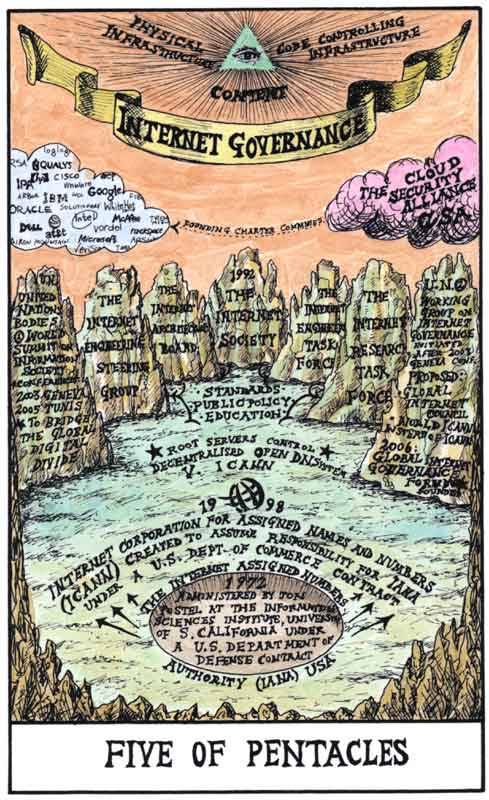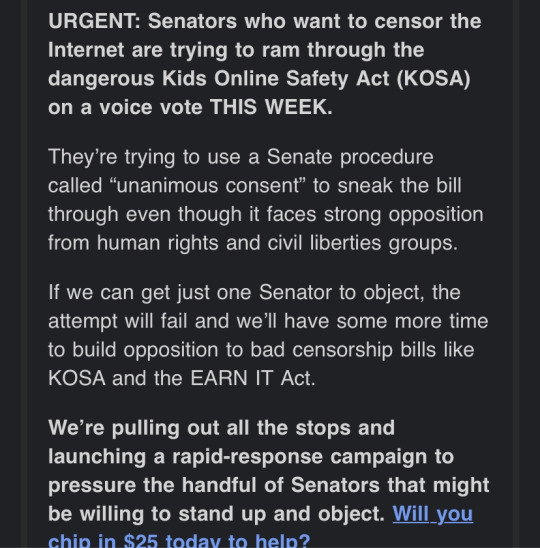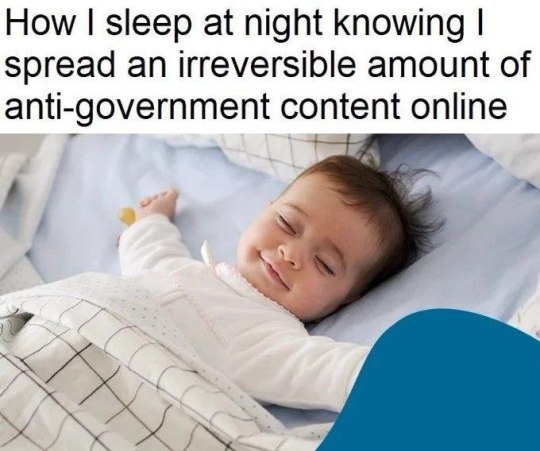#internet governance
Text
A lot of folks are responding to the whole Reddit situation by calling for the return of decentralised forums, and I think it's important to remember that, contrary to certain popular narratives, the reason early 2000s forum culture has fallen by the wayside is not because people are Just Lazy. Certainly, ease of use is part of it, but a much larger part of it is how vulnerable self-hosted forums are.
Basically, the problem is that even the largest and most carefully managed self-hosted forums can be rendered unusable more or less indefinitely by a single sufficiently determined hostile actor. This can take the form of both attacks on the forum's social infrastructure (i.e., via sock-puppet accounts, botting, organised "raids", etc.) and attacks on its technical infrastructure (i.e., via hacking, DDoS, etc.). In either case, a self-hosted forum has no real defence, and the majority of decentralised forum communities survive only by virtue of their relative obscurity; once a self-hosted forum manages to attract the attention of That One Guy who's willing to devote his life to shitting the place up over some microscopic slight, it's effectively game over.
Right now, there are essentially only two mitigation strategies:
Gathering huge numbers of communities under a single, massively centralised technical infrastructure that's simply too large and robust for any one hostile actor to bring down; and
Hardening the community's social infrastructure either by going private and invite only (i.e., the Discord approach), or by making use of a vast centralised pool of volunteer labour to aggressively enforce community standards (i.e., the Reddit approach).
To be clear, these are not intractable problems; other solutions may well exist. However, any proposed plan for bringing decentralised public forums back needs to address them. If you're going in operating under the assumption that forums have become marginalised simply because corporations are evil and people are lazy, you're setting yourself up to learn the hard way why self-hosted forums no longer seem to be capable of growing beyond a certain point.
8K notes
·
View notes
Photo

Five of Pentacles. Art by Suzanne Treister, from HEXEN 2.0.
Internet Governance
13 notes
·
View notes
Text
love when ppl defend the aggressive monetization of the internet with "what, do you just expect it to be free and them not make a profit???" like. yeah that would be really nice actually i would love that:)! thanks for asking
#yes i want things to be free like ??? that is not a weird desire#'but but it costs money to keep up' ok and? how is that my problem#the government has plenty of murder dollars they could reallocate a few to make internet services universal if they wanted#also these companies were perfectly capable of supporting themselves before the internet got drowned with ads so ¯\_(ツ)_/¯#edit: muting notifs on this post bc new additions have kind of petered out#so no one feel bad about adding something someone else has said‚ it is not bothering me im just trying to keep my#notifs page cleanish lol#also since i saw some people are being redirected to read my tags: firstly hiiiiii this is a special secret message for you:3#secondly i have learned since making this that the reason they were able to support themselves previously was because#of investors bankrolling everything#and theyre now finally realizing that theyre never going to actually make a profit and arent as willing to invest#however thats just a minor correction and doesnt change my overall point#once again. so many murder dollars#so thats why im just adding it here in the tags rather than making an actual correction#anyways . love yall 💕#origibberish#bigger gibbers
31K notes
·
View notes
Text
Future of the Internet | Unlocking Tomorrow's Digital Frontier
The Internet has become an integral part of our lives, connecting people worldwide in ways unimaginable just a few decades ago. As we embark on a new era of technological advancements, it is essential to examine the future of the internet and its potential to shape our societies. And the way we interact with the digital world in the years to come. We will explore the exciting possibilities and…

View On WordPress
#AI and Machine Learning#Augmented Reality#Blockchain#Cloud Computing#Connectivity#Cybersecurity#Data Privacy#Digital Frontier#Digital Transformation#Emerging Trends#Future Technologies#Innovation Ecosystem#Internet Evolution#Internet Governance#IoT (Internet of Things)#Online Communities#Tech Innovation#Virtual Reality#Web 3.0
1 note
·
View note
Text
Abused by a moody & angry AI on World Folklore Day! Taking on the Tech Giants!
AI and the Clash of Traditions and Technologies n World Folklore Day Dr Kris Rampersad confronts the tech giants
When is Open AI not Open-minded AI.?
As I head to the 19th Internet Governance Forum hosted by the Caribbean Telecommunications Union (see more below) , I am greeted by Bing, the Microsoft search engine, announcing it is World Folklore Day, only to be abused by an angry AI!
You would be surprised – or would you? – to see the end when Bing’s AI angrily, yes angrily, terminated the conversation…

View On WordPress
#AI#CEIBA-EDUtainment#critical thinking#Cultural Survival#CyberSecurity#Internet Governance#Internet Security#women techmakers
0 notes
Text
GHANA INTERNET GOVERNANCE SCHOOL FELLOWSHIP
Application for Participation in the 3rd Annual Edition of The Ghana Internet Governance School Fellowship Program(GIGS)Be part of the Ghana’s prestigious fellowship and learn about: Evolution of the Internet Internet Governance in Theory & Practice Domain Name System Internet Access- Challenges & Opportunities Digital Skills & Rights Cyber Safety and Security …

View On WordPress
0 notes
Text
MEGANETS: HOW DIGITAL FORCES BEYOND OUR CONTROL COMMANDEER OUR DAILY LIVES AND INNER REALITIES - David B. Auerbach (2023)
I’ve always been impressed by the writing on David Auerbach’s blog. His article The Bloodsport of the Hive Mind: Common Knowledge in the Age of Many-to-Many Broadcast Networks should be obligatory reading: it’s a very sharp and original analysis explaining some of what ails our current society – antivaxxers, conspiracy theories, etc. I’ve been equally impressed by his year-end lists: the sheer…

View On WordPress
#2020s#Artificial Intelligence#Computer science#Cryptocurrencies#Data science#David B. Auerbach#Facebook#Google#How Digital Forces Beyond Our Control Commandeer Our Daily Lives and Inner Realities#Information technology#Internet#Internet governance#Meganets#Metaverse#Microsoft#Non-fiction#Social networks
0 notes
Text

Motherboard Sword
#artists on tumblr#pink puffer#imagine a sword but connected to the internet#it can both slice and DDOS the government#poc artist
2K notes
·
View notes
Text
SIGN THIS PETITION AS AN ATTEMPT TO STOP KOSA--WE'RE GETTING CLOSE!
https://www.change.org/p/stop-the-kosa?recruiter=1331807538&utm_source=share_petition&utm_medium=sms&utm_campaign=psf_combo_share_initial&utm_term=psf&recruited_by_id=57368c40-d0fd-11ee-98f7-2175430f819f&share_bandit_exp=initial-36809664-en-US
#kosa act#kosa bill#Stop kosa#Kosa#kids online safety act#internet censorship#bad internet bills#internet freedom#Internet culture#Internet#Signal boost#signal b00st#signal boooooost#Petition#us government
1K notes
·
View notes
Text

stopkosa.com
change.org petition
KOSA or the Kids Online Safety Act is an Internet bill being pushed by the American government. It claims its purpose is to "protect" kids, but really its methods of enforcing this is mass censorship and control of the Internet. The passing of this bill would lead to LGBTQ+ related information, reproductive healthcare, and other topics that government officials may find "dangerous" to children be restricted or censored.
WHAT CAN YOU DO?
In the website linked above, there is a petition you can sign as well as a pre-filled message you can send. You can also write to your representatives, and if you don't want to come up with an entire message, I've attached sample scripts. Also, go to badinternetbills.com for another petition that references similar bills. For more information about KOSA, you can see this article: eff.org/deeplinks/2024/02/don… .
Spread information about this, and do what you can. This bill being passed would mean an era of censorship for the Internet.


#KOSA#kosa bill#stop kosa#kids online safety act#kids online safety bill#psa#bad internet bills#stop kids online safety act#fuck kosa#man even when its important im bad at tagging stuff#important#art#my art#us politics#us government#censorship#internet safety#petition#call your reps#spread the word#call to action
889 notes
·
View notes
Text
Do lawmakers even know how stupid KOSA truly is as a bill, if not dangerous. Think about it: having to give ID containing SENSITIVE INFORMATION (literally against Internet Safety 101) just to go on the internet. Being a minor having to do that is so dangerous and would put them in more danger at the hands of predators.
People who have to use the internet for educational uses will have to go through stupid, unneeded steps just to look up the purpose of the mitochondria!
Trans and Queer youth are in danger. Fandom spaces are in danger. Children, the very group of people that this bullshit bill is claiming to protect, are in DANGER!
The States having full monopoly over the internet is so, so ungodly stupid and dystopian. I can’t imagine being someone not from the States and having to witness all of this.
The bill doesn’t protect kids, it only puts them in more danger.
CALL YOUR REPS! SIGN PETITIONS! KEEP KOSA TRENDING! LET PEOPLE KNOW WHAT IS HAPPENING!
THIS IS AN ISSUE FOR ALL OF US! NOT JUST A SELECTIVE!
SIMILAR BILLS HAVE HAPPENED BEFORE AND BEEN STOPPED THANKS TO THE INTERNET! LET’S DO THAT AGAIN!
STOP KOSA!
#stop kosa#bad internet bills#queer issues#online safety#protect trans kids#make government officials cry again
887 notes
·
View notes
Text
"I disapprove of what you say, but I will defend to the death your right to say it"
-Evelyn Beatrice Hall, The Friends of Voltaire
The first amendment allows us to say what we want, whenever we want, without our government punishing us for our words. KOSA, therefore, is violating our first amendment rights. It's mass censorship of the internet, and our right to freedom of speech is being suppressed BY THE GOVERNMENT. Our founding fathers created this as THE FIRST AMENDMENT, and clearly thought this was important. Oh, wouldn't they be disappointed to see what their descendants are doing now. KOSA, a mass censorship bill that will contradict our constitution as we know it. KOSA, which instead of protecting the kids is in fact putting them in harms way. KOSA, which will put so so many people in danger. And we can stop it, but we have to fight. We MUST fight
To hear one voice clearly, we must have the freedom to hear them all
#kosa#stop kosa#fuck kosa#anti kosa#internet censorship#internet freedom#censorship#censorship bill#first amendment#freedom of speech#kids online safety act#kids online safety bill#bear rambles#this is so important. We HAVE to fight for our right of free speech#We MUST.#We can't allow the government to take away our rights.#and this whole post is based on my knowledge that I've accumulated. It may not he entirely accurate but it's pretty damn close
371 notes
·
View notes
Text
Sure you hate nazis but do you, like, actually respect Jews?
#me @ internet progressives#'fuck nazis! anyway all jews are personally responsible for the actions of the israeli government'#or 'fuck nazis! anyway religion is inherently bad and the world would be a better place with no religious people'#hating nazis isn't enough you also have to not be a dick to jews#jew crew#antisemitism
3K notes
·
View notes
Text
HI YALL IMMA NEED YA TO SPAM YOUR SENATORS VOICEMAILS AND SUCH TO STOP THIS BILL. WE CANNOT ALLOW THIS TO HAPPEN

#bad internet bills#anti gop#anti government#stop kosa#anti kosa#earn it act#earn it bill#anti censorship
282 notes
·
View notes
Text

#sleep#sleeping#night#at night#anti government#propaganda#internet#online#161#1312#antifa#antifascist#antifaschistische aktion#class war#anarchocommunism#anarchopunk#anarcho syndicalism#anarchofeminism#antiauthoritarian#antinazi#anti capitalism#ausgov#politas#auspol#tasgov#taspol#australia#fuck neoliberals#neoliberal capitalism#anthony albanese
171 notes
·
View notes
Text
In defense of bureaucratic competence

Sure, sometimes it really does make sense to do your own research. There's times when you really do need to take personal responsibility for the way things are going. But there's limits. We live in a highly technical world, in which hundreds of esoteric, potentially lethal factors impinge on your life every day.
You can't "do your own research" to figure out whether all that stuff is safe and sound. Sure, you might be able to figure out whether a contractor's assurances about a new steel joist for your ceiling are credible, but after you do that, are you also going to independently audit the software in your car's antilock brakes?
How about the nutritional claims on your food and the sanitary conditions in the industrial kitchen it came out of? If those turn out to be inadequate, are you going to be able to validate the medical advice you get in the ER when you show up at 3AM with cholera? While you're trying to figure out the #HIPAAWaiver they stuck in your hand on the way in?
40 years ago, Ronald Reagan declared war on "the administrative state," and "government bureaucrats" have been the favored bogeyman of the American right ever since. Even if Steve Bannon hasn't managed to get you to froth about the "Deep State," there's a good chance that you've griped about red tape from time to time.
Not without reason, mind you. The fact that the government can make good rules doesn't mean it will. When we redid our kitchen this year, the city inspector added a bunch of arbitrary electrical outlets to the contractor's plans in places where neither we, nor any future owner, will every need them.
But the answer to bad regulation isn't no regulation. During the same kitchen reno, our contractor discovered that at some earlier time, someone had installed our kitchen windows without the accompanying vapor-barriers. In the decades since, the entire structure of our kitchen walls had rotted out. Not only was the entire front of our house one good earthquake away from collapsing – there were two half rotted verticals supporting the whole thing – but replacing the rotted walls added more than $10k to the project.
In other words, the problem isn't too much regulation, it's the wrong regulation. I want our city inspectors to make sure that contractors install vapor barriers, but to not demand superfluous electrical outlets.
Which raises the question: where do regulations come from? How do we get them right?
Regulation is, first and foremost, a truth-seeking exercise. There will never be one obvious answer to any sufficiently technical question. "Should this window have a vapor barrier?" is actually a complex question, needing to account for different window designs, different kinds of barriers, etc.
To make a regulation, regulators ask experts to weigh in. At the federal level, expert agencies like the DoT or the FCC or HHS will hold a "Notice of Inquiry," which is a way to say, "Hey, should we do something about this? If so, what should we do?"
Anyone can weigh in on these: independent technical experts, academics, large companies, lobbyists, industry associations, members of the public, hobbyist groups, and swivel-eyed loons. This produces a record from which the regulator crafts a draft regulation, which is published in something called a "Notice of Proposed Rulemaking."
The NPRM process looks a lot like the NOI process: the regulator publishes the rule, the public weighs in for a couple of rounds of comments, and the regulator then makes the rule (this is the federal process; state regulation and local ordinances vary, but they follow a similar template of collecting info, making a proposal, collecting feedback and finalizing the proposal).
These truth-seeking exercises need good input. Even very competent regulators won't know everything, and even the strongest theoretical foundation needs some evidence from the field. It's one thing to say, "Here's how your antilock braking software should work," but you also need to hear from mechanics who service cars, manufacturers, infosec specialists and drivers.
These people will disagree with each other, for good reasons and for bad ones. Some will be sincere but wrong. Some will want to make sure that their products or services are required – or that their competitors' products and services are prohibited.
It's the regulator's job to sort through these claims. But they don't have to go it alone: in an ideal world, the wrong people will be corrected by other parties in the docket, who will back up their claims with evidence.
So when the FCC proposes a Net Neutrality rule, the monopoly telcos and cable operators will pile in and insist that this is technically impossible, that there is no way to operate a functional ISP if the network management can't discriminate against traffic that is less profitable to the carrier. Now, this unity of perspective might reflect a bedrock truth ("Net Neutrality can't work") or a monopolists' convenient lie ("Net Neutrality is less profitable for us").
In a competitive market, there'd be lots of counterclaims with evidence from rivals: "Of course Net Neutrality is feasible, and here are our server logs to prove it!" But in a monopolized markets, those counterclaims come from micro-scale ISPs, or academics, or activists, or subscribers. These counterclaims are easy to dismiss ("what do you know about supporting 100 million users?"). That's doubly true when the regulator is motivated to give the monopolists what they want – either because they are hoping for a job in the industry after they quit government service, or because they came out of industry and plan to go back to it.
To make things worse, when an industry is heavily concentrated, it's easy for members of the ruling cartel – and their backers in government – to claim that the only people who truly understand the industry are its top insiders. Seen in that light, putting an industry veteran in charge of the industry's regulator isn't corrupt – it's sensible.
All of this leads to regulatory capture – when a regulator starts defending an industry from the public interest, instead of defending the public from the industry. The term "regulatory capture" has a checkered history. It comes out of a bizarre, far-right Chicago School ideology called "Public Choice Theory," whose goal is to eliminate regulation, not fix it.
In Public Choice Theory, the biggest companies in an industry have the strongest interest in capturing the regulator, and they will work harder – and have more resources – than anyone else, be they members of the public, workers, or smaller rivals. This inevitably leads to capture, where the state becomes an arm of the dominant companies, wielded by them to prevent competition:
https://pluralistic.net/2022/06/05/regulatory-capture/
This is regulatory nihilism. It supposes that the only reason you weren't killed by your dinner, or your antilock brakes, or your collapsing roof, is that you just got lucky – and not because we have actual, good, sound regulations that use evidence to protect us from the endless lethal risks we face. These nihilists suppose that making good regulation is either a myth – like ancient Egyptian sorcery – or a lost art – like the secret to embalming Pharaohs.
But it's clearly possible to make good regulations – especially if you don't allow companies to form monopolies or cartels. What's more, failing to make public regulations isn't the same as getting rid of regulation. In the absence of public regulation, we get private regulation, run by companies themselves.
Think of Amazon. For decades, the DoJ and FTC sat idly by while Amazon assembled and fortified its monopoly. Today, Amazon is the de facto e-commerce regulator. The company charges its independent sellers 45-51% in junk fees to sell on the platform, including $31b/year in "advertising" to determine who gets top billing in your searches. Vendors raise their Amazon prices in order to stay profitable in the face of these massive fees, and if they don't raise their prices at every other store and site, Amazon downranks them to oblivion, putting them out of business.
This is the crux of the FTC's case against Amazon: that they are picking winners and setting prices across the entire economy, including at every other retailer:
https://pluralistic.net/2023/04/25/greedflation/#commissar-bezos
The same is true for Google/Facebook, who decide which news and views you encounter; for Apple/Google, who decide which apps you can use, and so on. The choice is never "government regulation" or "no regulation" – it's always "government regulation" or "corporate regulation." You either live by rules made in public by democratically accountable bureaucrats, or rules made in private by shareholder-accountable executives.
You just can't solve this by "voting with your wallet." Think about the problem of robocalls. Nobody likes these spam calls, and worse, they're a vector for all kinds of fraud. Robocalls are mostly a problem with federation. The phone system is a network-of-networks, and your carrier is interconnected with carriers all over the world, sometimes through intermediaries that make it hard to know which network a call originates on.
Some of these carriers are spam-friendly. They make money by selling access to spammers and scammers. Others don't like spam, but they have lax or inadequate security measures to prevent robocalls. Others will simply be targets of opportunity: so large and well-resourced that they are irresistible to bad actors, who continuously probe their defenses and exploit overlooked flaws, which are quickly patched.
To stem the robocall tide, your phone company will have to block calls from bad actors, put sloppy or lazy carriers on notice to shape up or face blocks, and also tell the difference between good companies and bad ones.
There's no way you can figure this out on your own. How can you know whether your carrier is doing a good job at this? And even if your carrier wants to do this, only the largest, most powerful companies can manage it. Rogue carriers won't give a damn if some tiny micro-phone-company threatens them with a block if they don't shape up.
This is something that a large, powerful government agency is best suited to addressing. And thankfully, we have such an agency. Two years ago, the FCC demanded that phone companies submit plans for "robocall mitigation." Now, it's taking action:
https://arstechnica.com/tech-policy/2023/10/telcos-filed-blank-robocall-plans-with-fcc-and-got-away-with-it-for-2-years/
Specifically, the FCC has identified carriers – in the US and abroad – with deficient plans. Some of these plans are very deficient. National Cloud Communications of Texas sent the FCC a Windows Printer Test Page. Evernex (Pakistan) sent the FCC its "taxpayer profile inquiry" from a Pakistani state website. Viettel (Vietnam) sent in a slide presentation entitled "Making Smart Cities Vision a Reality." Canada's Humbolt VoIP sent an "indiscernible object." DomainerSuite submitted a blank sheet of paper scrawled with the word "NOTHING."
The FCC has now notified these carriers – and others with less egregious but still deficient submissions – that they have 14 days to fix this or they'll be cut off from the US telephone network.
This is a problem you don't fix with your wallet, but with your ballot. Effective, public-interest-motivated FCC regulators are a political choice. Trump appointed the cartoonishly evil Ajit Pai to run the FCC, and he oversaw a program of neglect and malice. Pai – a former Verizon lawyer – dismantled Net Neutrality after receiving millions of obviously fraudulent comments from stolen identities, lying about it, and then obstructing the NY Attorney General's investigation into the matter:
https://pluralistic.net/2021/08/31/and-drown-it/#starve-the-beast
The Biden administration has a much better FCC – though not as good as it could be, thanks to Biden hanging Gigi Sohn out to dry in the face of a homophobic smear campaign that ultimately led one of the best qualified nominees for FCC commissioner to walk away from the process:
https://pluralistic.net/2022/12/15/useful-idiotsuseful-idiots/#unrequited-love
Notwithstanding the tragic loss of Sohn's leadership in this vital agency, Biden's FCC – and its action on robocalls – illustrates the value of elections won with ballots, not wallets.
Self-regulation without state regulation inevitably devolves into farce. We're a quarter of a century into the commercial internet and the US still doesn't have a modern federal privacy law. The closest we've come is a disclosure rule, where companies can make up any policy they want, provided they describe it to you.
It doesn't take a genius to figure out how to cheat on this regulation. It's so simple, even a Meta lawyer can figure it out – which is why the Meta Quest VR headset has a privacy policy isn't merely awful, but long.
It will take you five hours to read the whole document and discover how badly you're being screwed. Go ahead, "do your own research":
https://foundation.mozilla.org/en/privacynotincluded/articles/annual-creep-o-meter/
The answer to bad regulation is good regulation, and the answer to incompetent regulators is competent ones. As Michael Lewis's Fifth Risk (published after Trump filled the administrative agencies with bootlickers, sociopaths and crooks) documented, these jobs demand competence:
https://memex.craphound.com/2018/11/27/the-fifth-risk-michael-lewis-explains-how-the-deep-state-is-just-nerds-versus-grifters/
For example, Lewis describes how a Washington State nuclear waste facility created as part of the Manhattan Project endangers the Columbia River, the source of 8 million Americans' drinking water. The nuclear waste cleanup is projected to take 100 years and cost 100 billion dollars. With stakes that high, we need competent bureaucrats overseeing the job.
The hacky conservative jokes comparing every government agency to the DMV are not descriptive so much as prescriptive. By slashing funding, imposing miserable working conditions, and demonizing the people who show up for work anyway, neoliberals have chased away many good people, and hamstrung those who stayed.
One of the most inspiring parts of the Biden administration is the large number of extremely competent, extremely principled agency personnel he appointed, and the speed and competence they've brought to their roles, to the great benefit of the American public:
https://pluralistic.net/2022/10/18/administrative-competence/#i-know-stuff
But leaders can only do so much – they also need staff. 40 years of attacks on US state capacity has left the administrative state in tatters, stretched paper-thin. In an excellent article, Noah Smith describes how a starveling American bureaucracy costs the American public a fortune:
https://www.noahpinion.blog/p/america-needs-a-bigger-better-bureaucracy
Even stripped of people and expertise, the US government still needs to get stuff done, so it outsources to nonprofits and consultancies. These are the source of much of the expense and delay in public projects. Take NYC's Second Avenue subway, a notoriously overbudget and late subway extension – "the most expensive mile of subway ever built." Consultants amounted to 20% of its costs, double what France or Italy would have spent. The MTA used to employ 1,600 project managers. Now it has 124 of them, overseeing $20b worth of projects. They hand that money to consultants, and even if they have the expertise to oversee the consultants' spending, they are stretched too thin to do a good job of it:
https://slate.com/business/2023/02/subway-costs-us-europe-public-transit-funds.html
When a public agency lacks competence, it ends up costing the public more. States with highly expert Departments of Transport order better projects, which need fewer changes, which adds up to massive costs savings and superior roads:
https://papers.ssrn.com/sol3/papers.cfm?abstract_id=4522676
Other gaps in US regulation are plugged by nonprofits and citizen groups. Environmental rules like NEPA rely on the public to identify and object to environmental risks in public projects, from solar plants to new apartment complexes. NEPA and its state equivalents empower private actors to sue developers to block projects, even if they satisfy all environmental regulations, leading to years of expensive delay.
The answer to this isn't to dismantle environmental regulations – it's to create a robust expert bureaucracy that can enforce them instead of relying on NIMBYs. This is called "ministerial approval" – when skilled government workers oversee environmental compliance. Predictably, NIMBYs hate ministerial approval.
Which is not to say that there aren't problems with trusting public enforcers to ensure that big companies are following the law. Regulatory capture is real, and the more concentrated an industry is, the greater the risk of capture. We are living in a moment of shocking market concentration, thanks to 40 years of under-regulation:
https://www.openmarketsinstitute.org/learn/monopoly-by-the-numbers
Remember that five-hour privacy policy for a Meta VR headset? One answer to these eye-glazing garbage novellas presented as "privacy policies" is to simply ban certain privacy-invading activities. That way, you can skip the policy, knowing that clicking "I agree" won't expose you to undue risk.
This is the approach that Bennett Cyphers and I argue for in our EFF white-paper, "Privacy Without Monopoly":
https://www.eff.org/wp/interoperability-and-privacy
After all, even the companies that claim to be good for privacy aren't actually very good for privacy. Apple blocked Facebook from spying on iPhone owners, then sneakily turned on their own mass surveillance system, and lied about it:
https://pluralistic.net/2022/11/14/luxury-surveillance/#liar-liar
But as the European experiment with the GDPR has shown, public administrators can't be trusted to have the final word on privacy, because of regulatory capture. Big Tech companies like Google, Apple and Facebook pretend to be headquartered in corporate crime havens like Ireland and Luxembourg, where the regulators decline to enforce the law:
https://pluralistic.net/2023/05/15/finnegans-snooze/#dirty-old-town
It's only because of the GPDR has a private right of action – the right of individuals to sue to enforce their rights – that we're finally seeing the beginning of the end of commercial surveillance in Europe:
https://www.eff.org/deeplinks/2022/07/americans-deserve-more-current-american-data-privacy-protection-act
It's true that NIMBYs can abuse private rights of action, bringing bad faith cases to slow or halt good projects. But just as the answer to bad regulations is good ones, so too is the answer to bad private rights of action good ones. SLAPP laws have shown us how to balance vexatious litigation with the public interest:
https://www.rcfp.org/resources/anti-slapp-laws/
We must get over our reflexive cynicism towards public administration. In my book The Internet Con, I lay out a set of public policy proposals for dismantling Big Tech and putting users back in charge of their digital lives:
https://www.versobooks.com/products/3035-the-internet-con
The most common objection I've heard since publishing the book is, "Sure, Big Tech has enshittified everything great about the internet, but how can we trust the government to fix it?"
We've been conditioned to think that lawmakers are too old, too calcified and too corrupt, to grasp the technical nuances required to regulate the internet. But just because Congress isn't made up of computer scientists, it doesn't mean that they can't pass good laws relating to computers. Congress isn't full of microbiologists, but we still manage to have safe drinking water (most of the time).
You can't just "do the research" or "vote with your wallet" to fix the internet. Bad laws – like the DMCA, which bans most kinds of reverse engineering – can land you in prison just for reconfiguring your own devices to serve you, rather than the shareholders of the companies that made them. You can't fix that yourself – you need a responsive, good, expert, capable government to fix it.
We can have that kind of government. It'll take some doing, because these questions are intrinsically hard to get right even without monopolies trying to capture their regulators. Even a president as flawed as Biden can be pushed into nominating good administrative personnel and taking decisive, progressive action:
https://doctorow.medium.com/joe-biden-is-headed-to-a-uaw-picket-line-in-detroit-f80bd0b372ab?sk=f3abdfd3f26d2f615ad9d2f1839bcc07
Biden may not be doing enough to suit your taste. I'm certainly furious with aspects of his presidency. The point isn't to lionize Biden – it's to point out that even very flawed leaders can be pushed into producing benefit for the American people. Think of how much more we can get if we don't give up on politics but instead demand even better leaders.
My next novel is The Lost Cause, coming out on November 14. It's about a generation of people who've grown up under good government – a historically unprecedented presidency that has passed the laws and made the policies we'll need to save our species and planet from the climate emergency:
https://us.macmillan.com/books/9781250865939/the-lost-cause
The action opens after the pendulum has swung back, with a new far-right presidency and an insurgency led by white nationalist militias and their offshore backers – seagoing anarcho-capitalist billionaires.
In the book, these forces figure out how to turn good regulations against the people they were meant to help. They file hundreds of simultaneous environmental challenges to refugee housing projects across the country, blocking the infill building that is providing homes for the people whose homes have been burned up in wildfires, washed away in floods, or rendered uninhabitable by drought.
I don't want to spoil the book here, but it shows how the protagonists pursue a multipronged defense, mixing direct action, civil disobedience, mass protest, court challenges and political pressure to fight back. What they don't do is give up on state capacity. When the state is corrupted by wreckers, they claw back control, rather than giving up on the idea of a competent and benevolent public system.

If you'd like an essay-formatted version of this post to read or share, here's a link to it on pluralistic.net, my surveillance-free, ad-free, tracker-free blog:
https://pluralistic.net/2023/10/23/getting-stuff-done/#praxis
#pluralistic#nerd harder#private right of action#privacy#robocalls#fcc#administrative competence#noah smith#spam#regulatory capture#public choice theory#nimbyism#the lost cause#the internet con#evidence based policy#small government#transit#praxis#antitrust#trustbusting#monopoly
379 notes
·
View notes